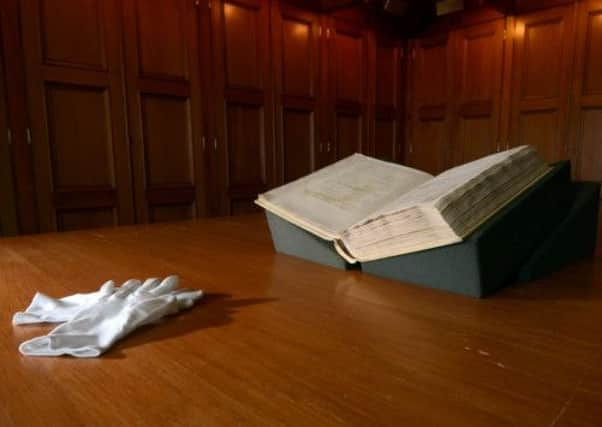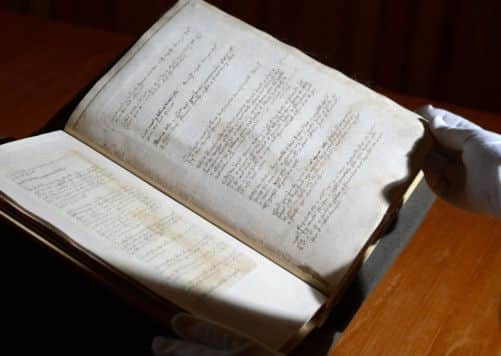Aberdeen ancient council records on UNESCO list


The ancient collection of Aberdeen burgh records, now held by Aberdeen City and Aberdeenshire Archives, has been chosen for inclusion on an eleven-strong list of treasured documents on the UK Register of Important Documentary Heritage, part of the UNESCO’s online Memory of the World Programme.
Written in Latin and old Scots, the archives cover eight volumes, dating from 1398 to 1509, and represent the oldest and most complete set of burgh records in Scotland, charting local government in the Granite City in medieval times.
Advertisement
Hide AdAn Aberdeen City Council spokeswoman explained: “The 5,238 pages of the first eight volumes represent the earliest and most complete body of surviving records of any Scottish town.


“Alongside the Scottish Government’s Exchequer Rolls and the Register of the Great Seal, these records are the only surviving near-continuous record for Scotland in the 15th Century which give an unrivalled insight into the political and social life of the Scottish medieval town.
“The depth of detail is unique as the registers include not only the records of the town council, which usually met twice a week, but of the bailie and guildry courts. Aberdeen’s mediaeval city council functioned both as a policy making unit and as a legal court.
“The early council records contain not only documents of detailed council discussions of policy, but also of the council’s more routine concerns, such as legal decisions in hundreds of disputes between citizens, either at the instigation of individuals or the council’s own officials.”
She continued: “The registers include the elections of office bearers and councillors; admissions of burgesses; property transfers; cargoes of foreign vessels; statements regarding public health issues; rentals of burgh lands and fishing; royal missives; tax rolls; and much more. Elsewhere in Scotland, the material that has survived is later and more limited, either to fragments of burgh court records or to guild court material of variable length and quality.”
Digital project
Phil Astley, the City archivist, said: “This endorsement from UNESCO presents huge potential by way of publicity and promotion for the archive. It sends a positive message to potential researchers and students both at home and overseas regarding the quality and depth of the records held by Aberdeen City and Aberdeenshire Archives.
Advertisement
Hide Ad“The records, which have recently been digitised by the National Records of Scotland, are also the subject of a very exciting collaborative project with the University of Aberdeen which will widen access to these fascinating records, of which only a small amount have been published previously.”
Dr Jackson Armstrong and Dr Andrew Mackillop, historians at the Department of History at Aberdeen University, are currently working with Aberdeen and Aberdeenshire Archives to make the early burgh registers more widely accessible.
Advertisement
Hide AdDr Armstrong said: “The Aberdeen Burgh Registers are one of the city’s great unknown gems - as important in their own way as some of the better known historical landmarks. They constitute one of the great reservoirs of historical knowledge on urban and regional life anywhere in northern Europe, and are certainly the most significant body of historic town records for Scotland.
“Their value to academic historians has long been appreciated however thanks to the partnership working between the City of Aberdeen Council and the University of Aberdeen we aim to make the records more freely accessible to all interested parties.”
Other documents included on the UK list are the Domesday Book from the National Archives, the Churchill Archive from Churchill College, Cambridge University, Earl Haig’s papers from the National Library of Scotland, and Alfred Hitchcock’s silent films from the British Film Institute National Film Archive.
David Dawson, chairman of the UK Memory of the World Committee, said: “This year’s inscriptions reflect the richness of UK culture and history, from medieval manuscripts to ground-breaking cinema. We hope that today’s announcement will encourage people to discover these items and collections, as well as some of the other great documentary heritage near them.”